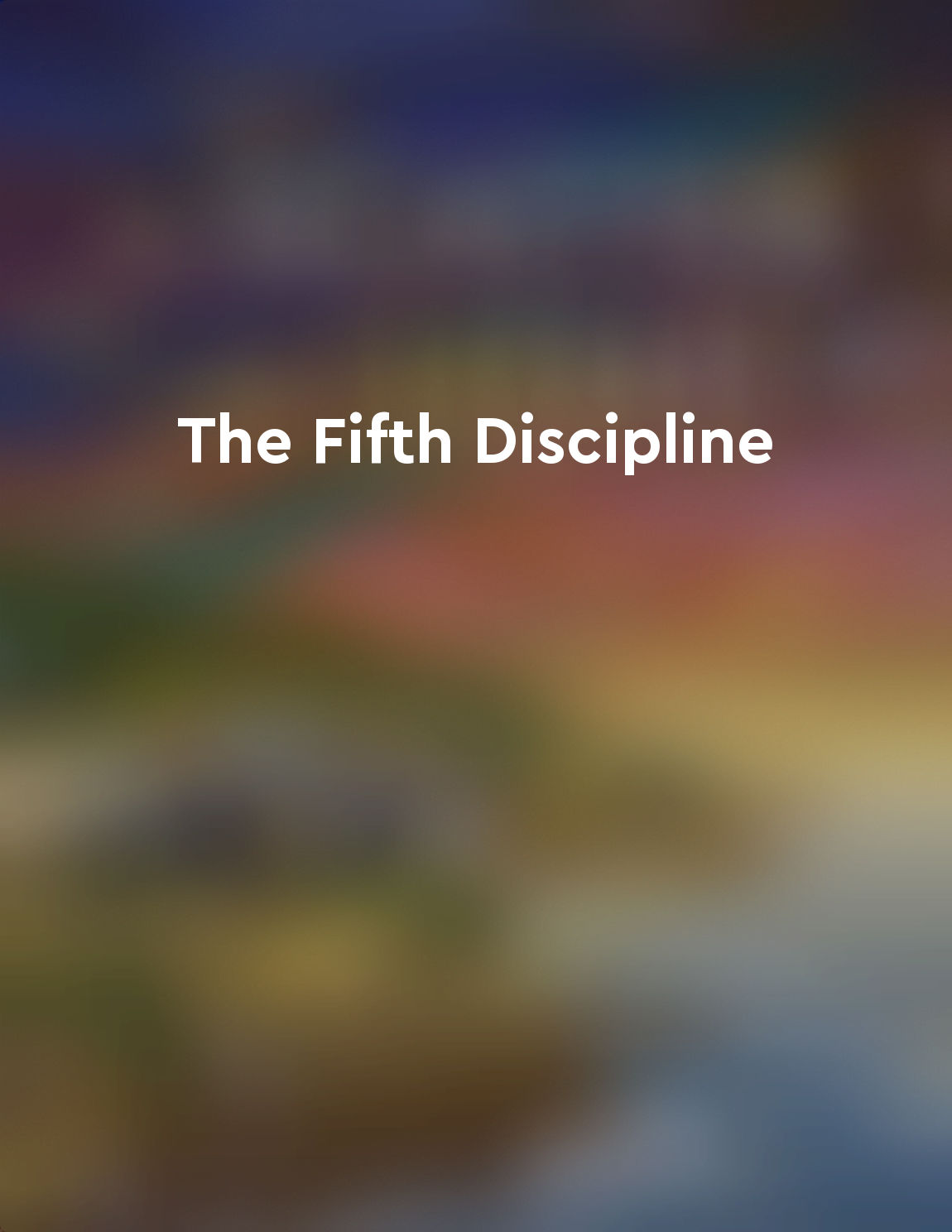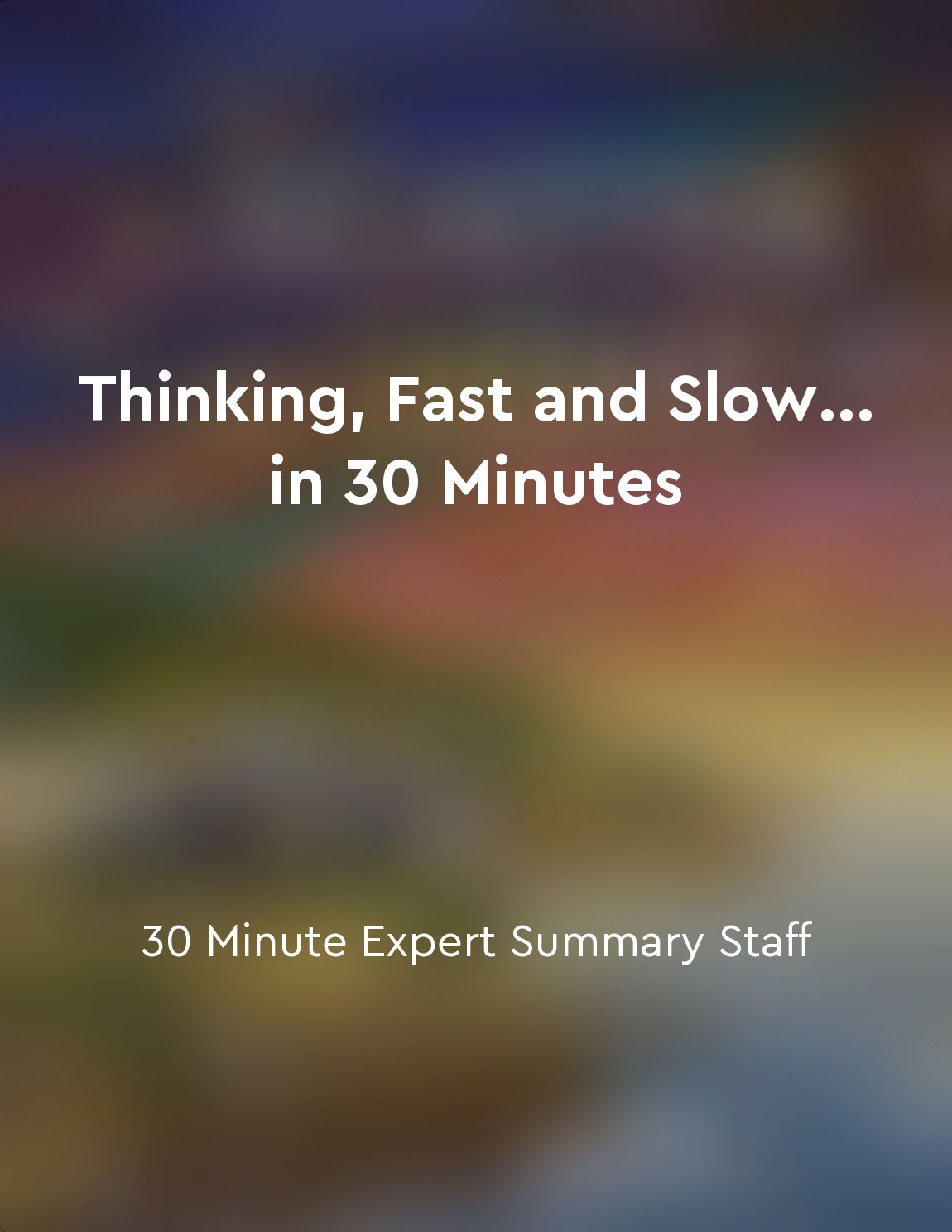System one is automatic and quick from "summary" of Thinking, Fast and Slow... in 30 Minutes by 30 Minute Expert Summary Staff
System one is automatic and quick. It operates effortlessly and without conscious effort, making it the intuitive side of our mind. It is responsible for many of our instantaneous judgments and decisions, relying on associations and patterns that have been ingrained through experience. This system is essential for our survival, allowing us to quickly react to potential threats or opportunities in our environment. One key characteristic of system one is its simplicity. It processes information rapidly and efficiently, often relying on heuristics or mental shortcuts to make decisions. These shortcuts can lead to errors or biases, but they are necessary for making fast judgments in everyday situations. By simplifying complex information, system one helps us navigate the world with ease. Another important aspect of system one is its speed. It operates much faster than system two, our deliberate and analytical thinking system. This rapid processing allows us to make split-second decisions in high-pressure situations, such as when driving a car or playing a sport. System one's quick reactions are crucial for our survival and success in fast-paced environments. Despite its speed and efficiency, system one is not always accurate. It can be influenced by biases, emotions, and environmental factors that cloud our judgment. In some cases, these automatic responses can lead to errors or irrational decisions. Understanding the limitations of system one can help us recognize when we need to slow down and engage our more deliberate thinking system.- System one is a powerful tool that helps us navigate the complexities of our world. By relying on quick, automatic judgments, we can make decisions with ease and efficiency. However, it is important to be aware of the limitations of system one and know when to engage our more analytical thinking system for more complex problems or situations.
Similar Posts

Personal mastery is essential for professional growth
Personal mastery is a concept that goes beyond traditional notions of skill development or expertise. It is about approaching o...

The impact of social connections on happiness and wellbeing
Social connections play a vital role in our happiness and overall wellbeing. Humans are social creatures, and our relationships...

Focus on the big ideas and ignore the noise
It is essential to focus on the big ideas and ignore the noise. In a world filled with distractions and irrelevant information,...
Internet usage promotes cognitive dexterity
In the digital age, our brains are constantly being challenged and stimulated by the vast amount of information available on th...
Confirmation bias may lead to selective attention
Confirmation bias, a common phenomenon in decision-making, can have a significant impact on how individuals process information...
Confirmation bias can blind us to alternative perspectives
Confirmation bias is a powerful force that can shape our perceptions and decisions without us even realizing it. This cognitive...
Understand the principles of innovation
To truly innovate, you must first understand the principles that drive the process. Innovation is not just about coming up with...
Our upbringing affects our emotional patterns
The emotional patterns we exhibit are deeply influenced by the environment in which we were raised. Our upbringing plays a cruc...
The scarcity principle can make us value things more highly
The scarcity principle, a concept deeply ingrained in human nature, plays a significant role in how we perceive the value of th...
Addressing symptoms without understanding causes is ineffective
When we try to solve a problem by only addressing its symptoms, we are essentially treating the surface of the issue without de...


